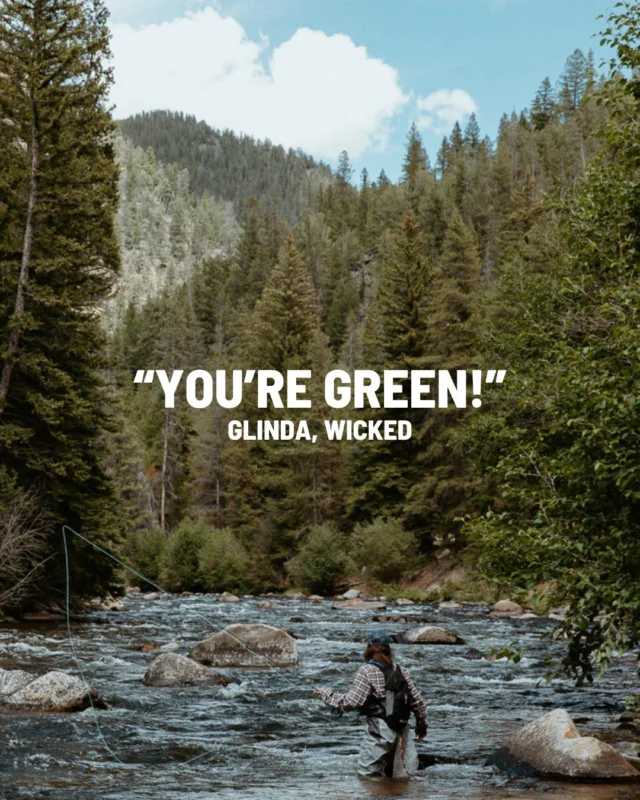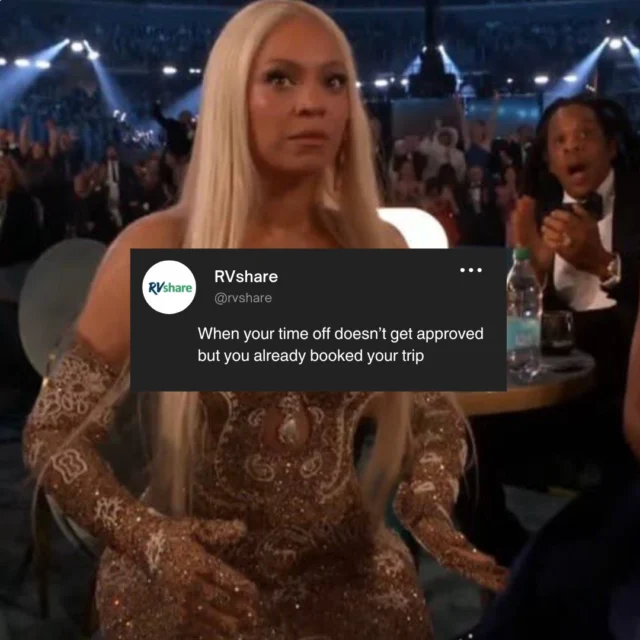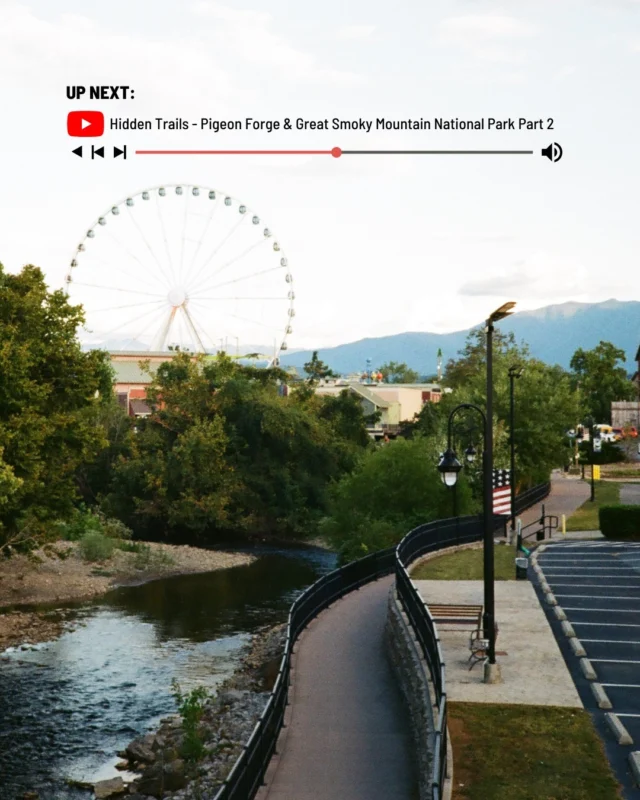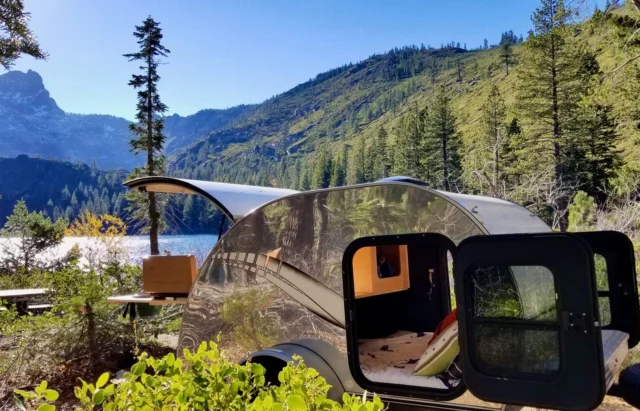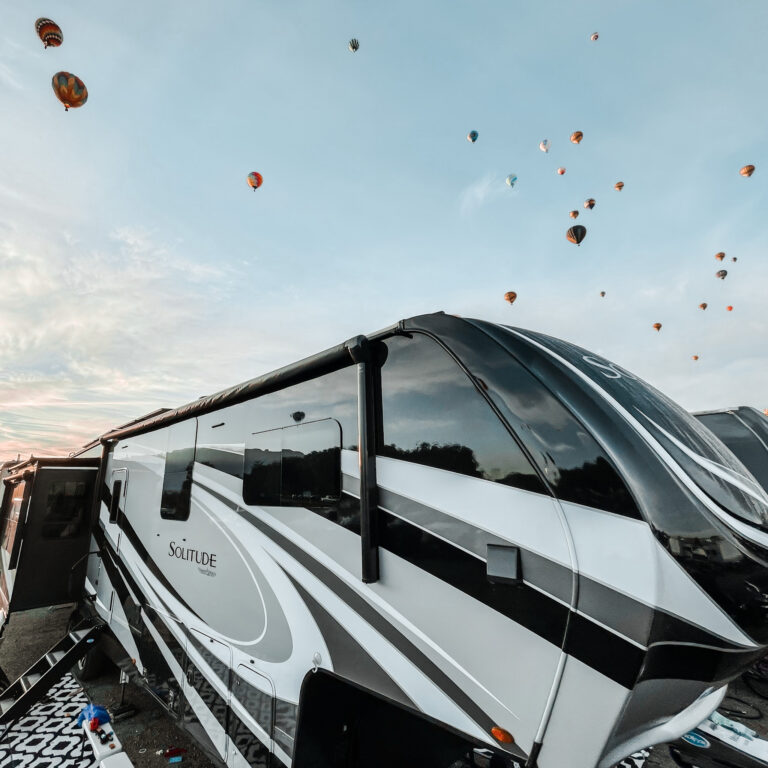
“So we just grabbed the toad and headed out of our FHU campsite to check out the BLM. Shore power is nice, but we’ve heard the landscape out here is gorgeous, and we’re scouting our next boondocking location!”
If that’s Greek to you, don’t worry. Just like any other hobby, RVing does come with some slang and terminology that can be confusing at first. (And unfortunately, not all of it is going to be covered in your user’s manual, road atlas, or even your favorite RV travel and camping guide.)
If all the lingo being tossed around the campsite has you scratching your head, we’re here to help you translate. Here are some RV terms you might hear during your trip — and what they actually mean in regular old English.
RV Vocabulary
Don’t worry, there won’t be a quiz at the end… but let’s get started!
Passport America
If you haven’t already heard your fellow campers chatting about the Passport America discount camping club, chances are you will — and soon. It’s the only one that gets you 50% off premium campsites at almost 1900 campgrounds across the nation (and in Mexico and Canada), all for less than $50 per year. At that price, it pays for itself in a single weekend!
In short, it’s a great investment — and we highly recommend it if you’re looking to stay in resort-style campgrounds with full hookups and tons of amenities. Click here to get your membership started today.
Dry Camping
If you’re camping without hookups, you’re dry camping — that is, you don’t have access to an external source of water or electricity, nor do you have a sewer connection.
Although it takes a little bit of planning (and being careful about your water usage), dry camping is a huge part of what your RV was built for, and it’s a great way to see some of the most beautiful campsites out there. Want to learn more? Check out one of our favorite reads on the topic: The Complete Book of Boondock RVing by Bill Moeller.
Boondocking
Boondocking is another term for dry camping, typically in remote areas that don’t charge a campsite accommodation fee. (However, you can also boondock in a different kind of wilderness: select Walmart parking lots!)
Moochdocking
Moochdocking is when you’re dry camping for free on someone’s property, such as a relative or friend.
Sticks-and-Bricks
This is a term sometimes used to refer to regular buildings and houses — i.e., those built out of sturdy materials and not on a wheelbase. (That is, everything that isn’t a motorhome!)
Towed (“Toad”) Vehicle
This is one of my favorite pieces of camping slang. And no, RVers don’t have a weird affinity for keeping pet frogs.
A “toad” vehicle is one that’s towed behind your main camper, to make shorter daytime excursions more accessible. It’s different from a tow vehicle, which is the one that goes in FRONT of your camper when you’re hauling a trailer.
RV Terms and Definitions
We’re not done yet! Here’s some more RV and camping terminology.
Fiver
In the world of camping slang, this doesn’t necessarily refer to a five-dollar bill. Rather, it’s a quickhand way of talking about a fifth-wheel travel trailer.
Gray Water
In your RV’s plumbing system, waste water — the stuff that disappears down the sink and the toilet — is held in two different tanks. The first one is gray water, which refers to all waste water other than the stuff you flush down the toilet. (That is, soapy water from your sinks and shower.)
Because it doesn’t contain human waste, in some states, it’s actually legal to dump gray water on the ground… but we don’t recommend it! Even eco-friendly soaps and detergents can wreak havoc on delicate wildlife and flowers.
Black Water
Now that we’ve covered gray water, you know what’s left… and that’s what’s in your black water tank. Fortunately, a sturdy — and opaque! — sewer hose and a quality pair of rubber gloves make dumping even this wastewater holding tank a pretty painless process.
Shore Power
Whenever you’ve got an electrical hookup to power your RV’s appliances, that’s being plugged into shore power.
Self-Contained
This refers to an RV that has indoor plumbing equipment included, as opposed to small pop-up campers and campervans that sometimes have an exterior toilet or kitchen facilities (or lack holding tanks).
RV Acronyms
If you frequent online RV discussion boards or have been reading through RV-related literature, you may have come across some confusing acronyms. Here are a few of the most common ones, deciphered.
FHU
This refers to full hook-up campsites — ones where you have access to shore power, water, and sewer.
UP
Especially if you’ve been meandering around the midwest, you’ve likely heard campers talking about heading to the UP… by which they mean the scenic upper peninsula of Michigan, not a trip “up” in the air.
BLM
This is short for Bureau of Land Management, which manages wide swaths of public lands, many of which are prime locations for boondocking.
NPS
This refers to the National Park Service, the department that manages our country’s beautiful natural preserves and parks. (Psst: Don’t forget your National Park Passport if you’re off to go explore them!)
GVWR (and GAWR, GCWR, UVW…)
These are some tricky ones.
When it comes to your RV’s weight, it’s a whole lot more complicated than just standing on the scale and reading a number. Furthermore, it’s really important; driving an overweight vehicle can be dangerous, and it can also void your insurance coverage.
All the above acronyms refer to different specific weight ratings for a motorhome or trailer. We’ll start with the broadest: GVWR means Gross Vehicle Weight Rating, which refers to the maximum allowable weight a vehicle can safely carry, including cargo and passengers.
We don’t have time to go into all the intricacies with these terms, but check out this great guide to RV and vehicle weight definitions at Your RV Lifestyle.
RV Abbreviations
If you’ve been shopping for a new vehicle, you’ll quickly see that understanding RV model names means learning some new rules as far as abbreviation meanings. When you get your pamphlet, you may see a rig listed as, say, RSDS31 or BHQRS38, which looks like alphabet soup at first.
But it’s actually not that complicated! The numbers usually refer to the vehicle’s length, and the letters correspond to key layout features. For instance, “BH” means bunkhouse, “Q” usually indicates a queen-sized master bedroom, and an “S” is a slide out. (RS = rear slide out; DS = dinette slide out.)
We hope this quick guide has helped you feel more comfortable with RV terminology… but the best way to learn more? Just get out there and go camping! You’ll meet plenty of veteran campers who are happy to share their insider knowledge.
This post may contain affiliate links.

